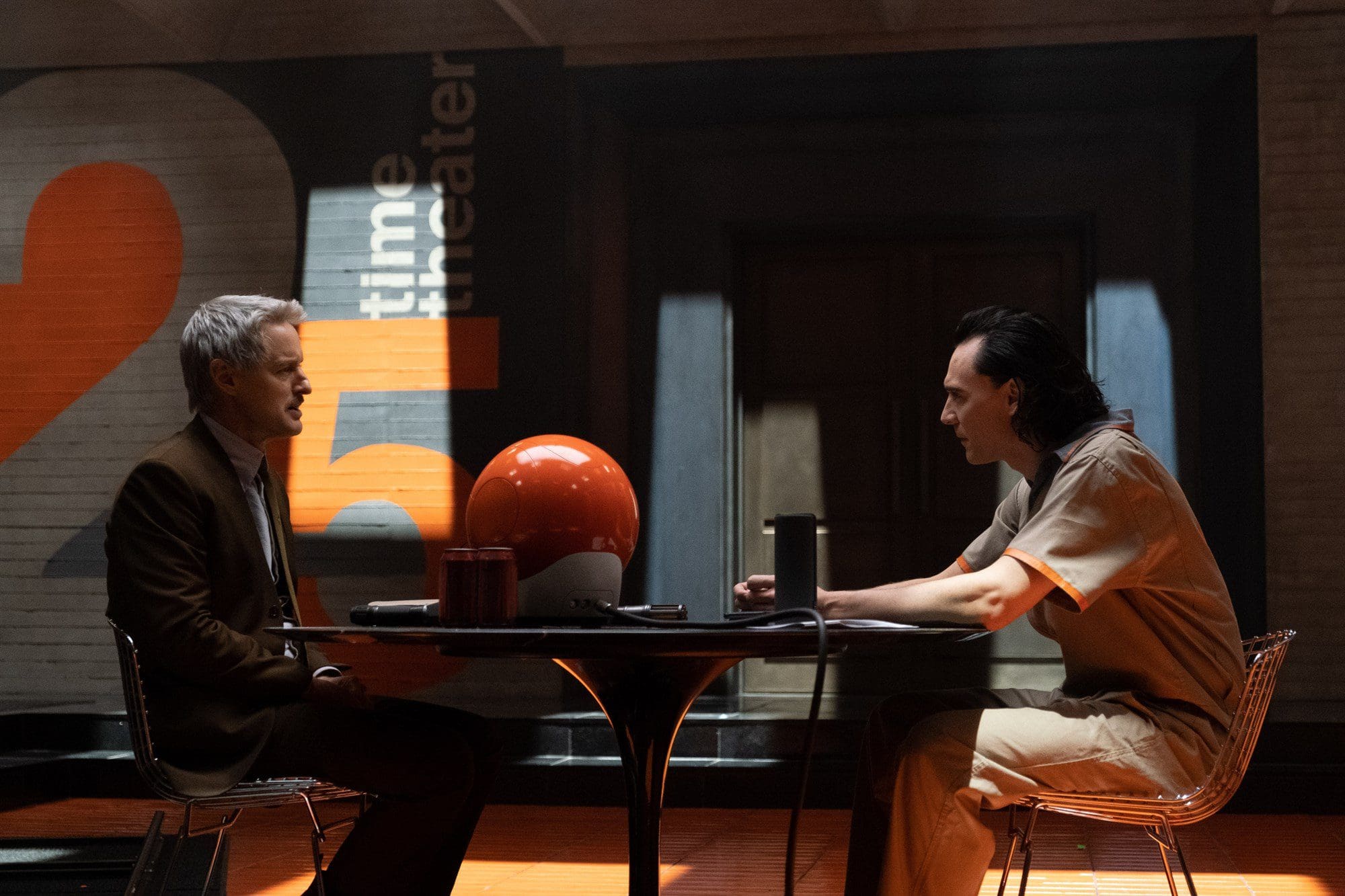
At this point, Marvel is infamous for its villain problem. That is, the fact that nearly every villain in an MCU property is bland at best and aggressively uninteresting at worst. It would take a lot of time to unpack why this happens so often, but suffice it to say that few expect a charismatic or compelling villain from a Marvel movie these days. Yet the major exception to this rule has always been their first major villain: Tom Hiddleston’s Loki Laufeyson. Hiddleston’s charm combined with Loki’s sympathetic origin into villainy made the character an instant fan favorite. Given that, it was only a matter of time before the character got his own chance in the spotlight outside of the shadow of his more heroic brother. And while it’s not an entirely smooth journey, so far it’s proving to be a wise investment.
In the mainline MCU, the last time we saw Loki he was disappearing to parts unknown after snagging the Tesseract in the confusion of the Avengers’ botched heist. The show picks up right after, following Loki as he tries to start over but is quickly picked up by the Time Variance Authority. This comically bureaucratic organization is apparently tasked with making sure alternate timelines don’t form, and Loki’s escape has broken their rules. “Incredible cosmic power represented by a byzantine, inscrutable bureaucracy” is a well-worn trope by this point, but the show deftly executes on the premise and wrings more than a few laughs from Loki’s life-or-death situation being treated with casual indifference by bored space bureaucrats.
More importantly, the overall concept taps very well into what makes Loki so compellingly sympathetic. His burning sense that life has treated him unfairly, that he is a victim of a cruel fate who must break free and blaze his own trail, is exactly what makes us like him in the first place (beyond Tom Hiddleston being handsome and funny, anyway). Literalizing this concept in the form of a distant authority that mandates his failures and forbids his successes makes us immediately identify with him and provides a great anchor for any future raging against the fates he might engage in. There even seems to be an element of meta-story here, with the uncaring Time Keepers standing in for the very writers that make the MCU. Time will tell (heh) if that ever goes beyond sly commentary, but the concept works well enough in-universe that it doesn’t need to flesh out that extra layer to stay interesting.
Still, while the set-up and concepts in the show are quite promising, it’s all put together in a rather shaggy package. After a sharp opening that gets things moving immediately and introduces the main conflict, we spend a lot of time spinning our wheels and unnecessarily repeating information. The setpiece for this section is an interrogation between Loki and a TVA agent trying to understand what drives him. This segment is a rather direct but effective way to let us in on Loki’s psychology, and it overall works quite well, but it also suffers the most from this shagginess. The two often circle the same points several times without illuminating more about Loki, interspersed with an abortive escape attempt and several quite literal time loops.
This is frustrating because this section all builds to Loki discovering his future in the MCU, from his role in his mother’s death to his reconciliation with Thor to his own death at Thanos’ hands. It’s quite touching, played with a perfect mixture of surprise, joy, despair, and defiance by Hiddleston. Yet because we have interrupted the build-up to this moment several times, deflating the tension and resetting the mood, it doesn’t hit with the full weight it deserves. The more disciplined hand of an editor adhering to a strict runtime could likely have kept the episode more streamlined, and it can’t help but feel like this moment would have hit harder with that greater degree of focus forcing them to keep only what was necessary.
But a little shoddy construction dampening a solid foundation, while disappointing, is much preferable to the reverse. Loki has all the confident hallmarks of a show that knows what it wants to be, bolstered by an end-of-episode reveal that promises the perfect foil for our time-displaced anti-villain. The middle may have been muddled, but that closing shot is memorable enough to wash away any lingering bad taste. If there’s some stumbles along the way, that’s more than forgivable if the show can live up to all the potential in this episode.

